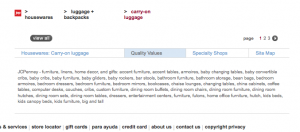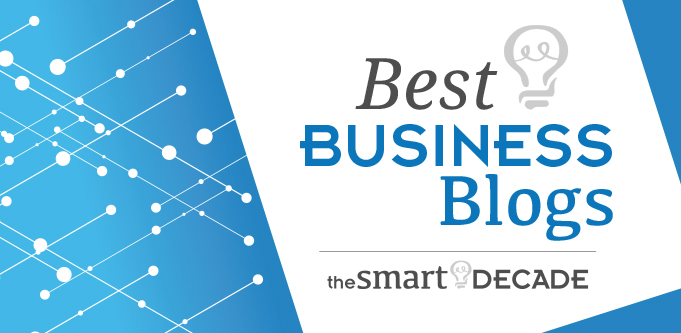Dirty Secrets of Search – Lessons from JC Penney
The New York Times published an article today called “The Dirty Little Secrets of Search“.I’ve rarely seen such a well written and thought out article on search marketing by the mainstream media. This one was incredibly well researched like an investigative journalist of yesteryear. Kudos to the author David Segal. It’s a really good read and I highly recommend it.
The article detailed how the big US retailer JC Penney had climbed to the top of Google for hundreds of search terms above other possibly more relevant sites.It turned out that they had a swathe of paid backlinks . If you didn’t know, one of the things that makes Google a great search engine is that it looks at other web pages that link to your web pages. It treats every link to your pages as a vote for your page. Paying for backlinks is like paying to be popular. It’s false and it’s against Google’s terms of service because it is trying to trick the algorithm.
JC Penney rankings dropped across the board as soon as the tactic was brought to the attention of Google and they began to downgrade the value of these paid links. It’s traffic from Google will now be non-existent.
Blackhat Technique?
Is this blackhat? I would say more like a clown hat. Usually blackhat SEO is defined as displaying one thing to a user and something completely different to a search engine bot. In their defence JC Penney has said that they had no idea the backlink buying had been going on and have since sacked their search marketing supplier. It would be difficult for Google to apply any sort of punitive actions against the site in this situation given the JC Penney’s Sgt Schultz defence.

This is very different to the other celebrated blackhat cases of bmw.de & ricoh.de that were showing highly keyword dense pages to the search engines and graphically rich pages to the users. They both got booted from the index and lost their page rank and it took them a while to get back. In the case of JC Penney, Google is now discounting any value that those paid links were giving to their site and consequently it’s rankings are dropping like a stone, along with traffic I would presume.
I label the technique as a clown hat one as it was a pretty heavy handed approach to improving ranking. JC Penney’s competitors would have begun to ask questions as soon as they saw themselves being usurped in the rankings at a peak sales time of the year. According to Vanessa Fox over at Search Engine Land her research concluded that the link buying / acquisition occurred around Christmas time.
2 Questions to ask your search marketer to avoid digital oblivion
1. Do you need to increase my backlinks? If so, why & how?
This is an important question because whilst you may have been told lots of backlinks is important, it really depends on your target phrase. Remember you just need to check what the number one result is doing to rank for a key phrase and do it better. In the case of JC Penney, they have very little text on their front page. It’s mainly made up of images. As Google relies on text to know what a page is about it would make it a very difficult page to rank by conventional means. Our advice in this situation is either redesign your site or build target pages or niche product sites if you want to be found in the search engines. The cheaper optionwould be to buy lots of backlinks and hope you don’t get caught.. which of course you will. Sometimes all a client’s site needs is good content structuring and coding. However this requires more skill and effort than simply buying backlinks and therefore usually more expensive.
Another technique that is used by less reputable SEO companies is comment spam. Comment spam is the practice of simply going to someone’s blog and leaving a comment simply for the purpose of gaining a backlink. It’s even cheaper than buying backlinks if you can outsource it to the third world. We have local SEO companies do it to our blogs a lot.It’s simply passing your marketing costs onto someone else and it can hurt your brand.
2. Do you use blackhat SEO?
A pretty simple question but an important one. I don’t have any moral issues with someone gaming the search engines, unless of course they’re doing it in the same keyword space as our clients. Then it’s gloves off time 🙂 The reason I personally have never done blackhat is that I am risk averse and I haven’t run into a situation where we couldn’t get a client ranked by conventional means. Whilst JC Penney isn’t doing what I would call blackhat, they are putting keyword rich text in very small print on the bottom of some of their pages, that users would have to click on a link to see. You could argue that it is there for the visually impaired who use screen readers, which don’t work all that well on web pages without text.

This techniquedoes seem like an attempt to get more keywords into the code as the page is primarily made up of images. There’s nothing wrong from a users perspective, in using images as long as they load fast but the reality is you may have to find other ‘creative’ ways to get your keywords into the code. My guess in the case of JC Penney, is that creativity hasn’t worked to well. The keyword dense part of the page is at the bottom, signalling low importance and the only other keywords seem to be in the meta tags or in alt & image tags. There is no really ‘important’ keyword content from the search bots perspective.Our advice would have been to provide more information on each of the products using keywords, in a design that was pleasing & useful to the user and also informative to the search bots. Maybe their search company suggested this but Penneys went for the cheaper option of buying backlinks. Certainly the code of the website could do with some simplification, however with 1.5 million pages in the index that maybe a very big job.

Jim’s been here for a while, you know who he is.


